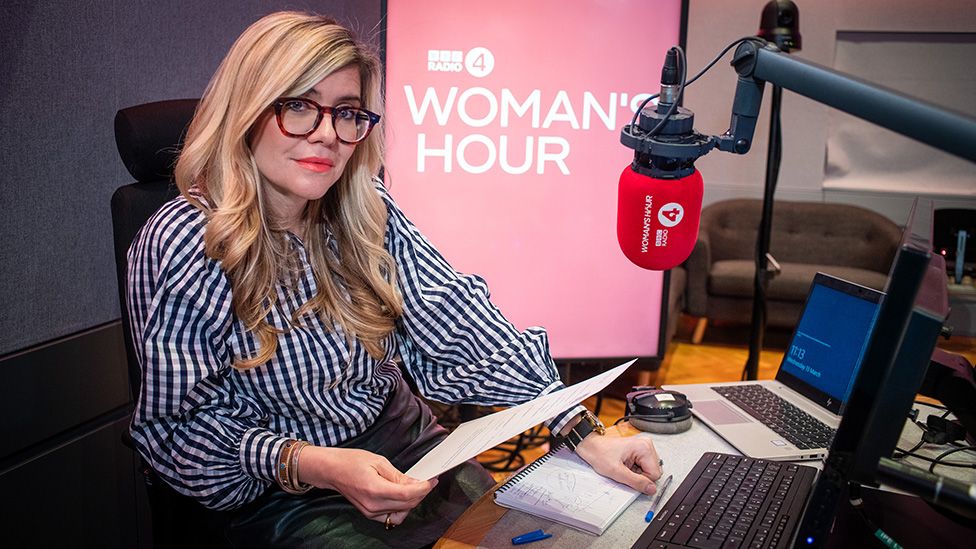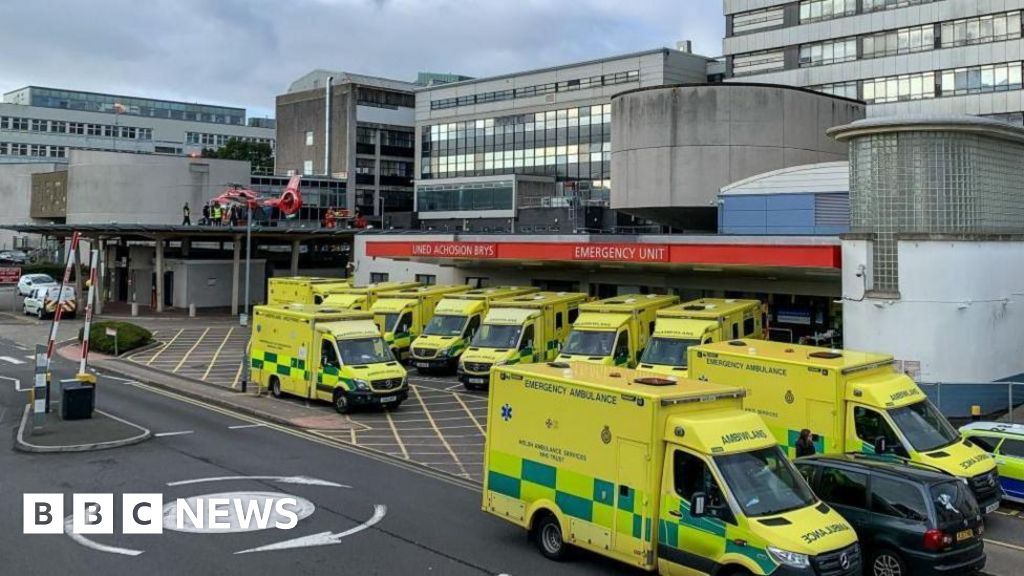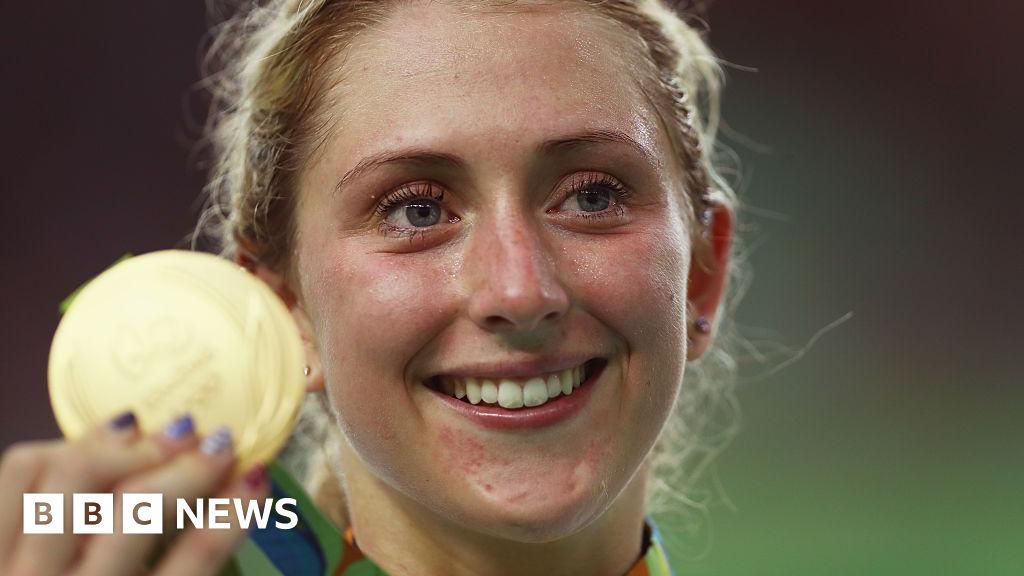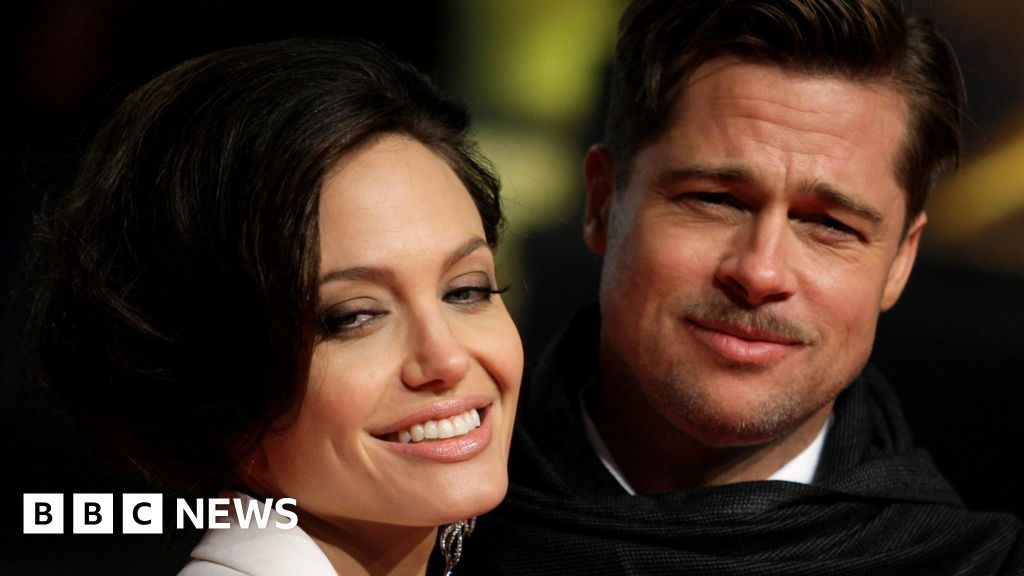
Emma Barnett has previously written about her experience of IVF treatment and miscarriage
By Emma Barnett
Presenter, Woman's Hour
Sometimes things come along that you didn't know you needed until you are offered them. That is how I feel about the government's new baby loss certificates.
Last month, I came off air after presenting Woman's Hour, went straight online and headed to a government website. I was prompted to do so by an emotional interview I had conducted about this new initiative with Zoe Clark-Coates, founder of the baby loss charity, Mariposa Trust. She has been tirelessly campaigning for nine years, based on her own extremely painful experiences.
During our conversation, it suddenly dawned on me - I too could apply for this certificate, which had come about as part of the government's Pregnancy Loss Review. I didn't give it any more thought. I just knew instinctively that I wanted to, becoming part of the first wave of women in England to apply.
I messaged my husband to explain what I was planning to do and asked if he was comfortable with it. I was going to put his name down and I didn't want him to receive an email asking for his consent without prior warning. He was.
You don't need access to your medical notes. Nor is the process limited to one baby loss.
Filling in the form only took a matter of minutes but it was far more emotional than I had anticipated. One of the questions you are asked is when you lost your baby, and I realised I didn't actually know what month or even year - despite it happening not that long ago, in January 2022.
Emma holds the certificate she applied for in memory of her baby
That whole period had become a grief-infused blur. A time where days and dates mattered little. Cue having to scroll back through old messages to family and friends where I had broken the news.
Re-reading the words I had chosen to communicate this news was tough, because it catapulted me back into that stark place. But I could also see, in the way I had decided to tell all of our nearest and dearest, that even then, in the fog of misery, I was trying to make what had happened seem real, important and proper.
We lost our baby in January 2022. Naively I had hoped you couldn't lose a baby that had taken five rounds of IVF to create. I somehow thought the gruelling process to arrive at this much-longed for outcome would magically inoculate me against the frightening reality that one in four pregnancies end in loss. It couldn't and didn't.
I was alone when I found out - not something I recommend if you can help it. I hadn't been feeling quite right for a few days and wanted some reassurance. So I booked a private scan, to the tune of £120, to put my mind at ease. My husband had offered to come but it was tricky with his work that day, so I told him not to worry, I would do it alone.
That turned out to be a big mistake. I stumbled out of the clinic, into the harsh sunlight of a busy London road, knowing that our dream was over. Gone.
Weirdly, I can remember I was meant to be cooking a roast chicken that night. It never got made. Time was now starkly divided between before that moment in the sonographer's room, where the sound of only one heartbeat filled my ears - my own - and after.
Living in the after was grim and tearful.
I suppose it is to the testament of the living, and those who surround you in love in the days and weeks afterwards, that they so badly want you to move on and not lose hope, and possibly start trying again.
But I didn't want to move on. Not for a long while. I had formed a relationship with our baby, daring to map out a little of our future together. But beyond medical forms, conversations with my stunned and deeply saddened husband, my texts to people about our loss and my memories of such a bond, there was nothing else to show the whole episode happened.
Like millions of women before me, the baby lived within me and died within me. My body and mind were the keeper and witness.
What are baby loss certificates?
- From February 2024, people in England who have lost a baby before 24 weeks of pregnancy have been able to apply for a certificate in memory of their baby
- You must be at least 16 years old and your pregnancy ended on or after 1 September 2018
- You do not need to provide any medical proof, so can still apply if your loss was not recorded by a medical team or doctor
- The certificate is optional and, while official, is not a legal document
- Currently you can only apply if you live in England and were residing in the country at the time of your loss
- In Scotland, you can apply for an entry to be made in the Memorial Book and a commemorative certificate is issued free of charge. The Welsh and Northern Ireland governments are working with counterparts in England to explore introducing baby loss certificates
Many people will not need a piece of paper. But the moment I realised I would like to have one was when Zoe and I spoke about having something official for the family file. Our loss is part of our family story and now there can be a piece of official paperwork to document it.
Women and our stories are missing from many historical records because for so long we simply weren't deemed worthy of properly recording. Our gains, losses and even our names lived and died with us. There are huge holes in people's family trees because women were simply not properly documented.
I even felt the act of applying for a baby loss certificate to be a political one - a refusal that something so major in our family's life be erased and not known about.
And when it arrived, 10 days later, in its crisp envelope and printed on thick white paper complete with an official government masthead - I felt weirdly satisfied, almost vindicated. It happened.
Here was some physical proof and something external to me which my husband and our children - when they are older - could read as part of the story of our lives, alongside our marriage certificate, birth certificates and all the other paraphernalia that documents our existences.
I don't wish to speak for my husband, but I will say with his permission, that he felt it was a hugely positive thing to do too, and offered a touch point for him about something that was very bound up with me and my body.
I think these certificates could also make people's grief more accessible to others, as well as offering something more official to mark all that a pregnancy can mean and help memorialise it too.
They will not be for everyone. Nor will they be all someone needs to pay tribute to the memory of their loss. And yet demand is expected to be high - so high the government has limited who can apply in England to those who suffered losses from 2018 onwards.
This is a temporary time limitation to avoid the system becoming overwhelmed. In time it will open to all, and many women have been in touch with us at Woman's Hour to say they will be applying to mark losses that happened decades ago.
Our certificate has now been filed in the folder alongside the birth certificates of our other children. I expect I will sometimes reach for it in quiet moments and reflect some more. I do that already without any paperwork, but I also do like knowing that it's there, recorded, like the very real and harrowing experience it was.
Emma will be talking about her experience on Woman's Hour on Wednesday 20 March at 10:00 GMT on BBC Radio 4.
If you are affected by any of the issues raised in this story, support and advice is available via the BBC Action Line.
 (1).png)
 9 months ago
26
9 months ago
26













